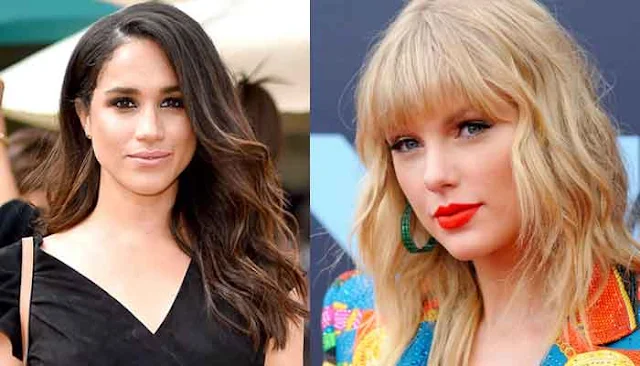The incident unfolded during Taylor Swift's August 8th show, where a constellation of celebrities, including Cameron Diaz, Tiffany Haddish, Zoe Saldana, and Gayle King, graced the VIP suite. However, Meghan Markle was conspicuously absent from this inner circle.
Meanwhile, rumors swirl that Meghan is contemplating airing her grievances about Taylor Swift to her social circle. Additionally, there are allegations that Gwyneth Paltrow has shared a roster of A-list acquaintances who harbor concerns about Meghan, especially in light of claims that Meghan emulated an idea for a project related to "Great Expectations" to earn a profit. This purportedly stems from Meghan's recurring attempts to draw inspiration from the work of others, which has become increasingly conspicuous and vexing to many.
Speculation revolves around Netflix's recent announcement of a modern take on Miss Havisham's life, a move that could potentially infringe upon copyrights held by RKO Studios for their contemporary version of "Great Expectations." While the legal ramifications remain uncertain, Netflix might be compelled to reconsider the project due to potential copyright conflicts. Meghan's project, reportedly inspired by Carly Fortune's book "Meet Me at the Lake," shares thematic elements with RKO's rendition of "Great Expectations."
This situation has cast a spotlight on the financial considerations surrounding professional screenwriting, casting, and the production of a movie trailer. Creating an enticing project that appeals to potential investors demands a substantial investment.
The actions of Harry and Meghan have sparked controversy on multiple fronts, raising doubts about their standing in Hollywood. The couple faces criticism on two fronts: allegations of borrowing ideas from others and perceived attempts to stifle free speech. These actions have swelled their ranks of critics in an industry that places a premium on creativity and originality.
One can't help but question whether Netflix's involvement in their latest venture is a strategic exit rather than a genuine endorsement of their talents. This begs the question: Is Netflix using this project as a means to expose what it sees as their incompetence in the realm of high-budget film production, a domain that demands years of experience and creative prowess?
Given their track record, including the ill-fated car chase endeavor, it's reasonable to wonder whether Netflix had reservations about providing additional funding to the couple. Legal concerns may also have come into play, especially if RKO Studios threatened legal action over potential copyright issues linked to the Dickensian theme.
Netflix may have found itself in a precarious position, potentially forced to bankroll the project due to legal pressures. Some argue that Netflix's initial misstep was overcompensating Harry and Meghan for their projects, resulting in a perceived lack of confidence in their capabilities.
Meghan's foray into Hollywood and her ambition to direct and produce films have raised eyebrows. Many question whether she possesses the influence or financial resources to execute such endeavors successfully. Furthermore, her reluctance to seek guidance from industry professionals could hinder her projects. She doesn't hold a candle to industry luminaries like Steven Spielberg or Meryl Streep, let alone Oscar-winning talents.
Meghan's penchant for imitation has not escaped notice. Her efforts to emulate the work of others, such as the alleged imitation of Gwyneth Paltrow's projects, have cast doubt on her originality and creativity.
The contention that Harry and Meghan want to distance themselves from their own narrative while simultaneously pursuing projects that mirror their own experiences has fueled skepticism about their authenticity. Critics argue that this apparent contradiction is just another illustration of their lack of genuineness.
Meghan Markle's involvement in Hollywood continues to be met with skepticism, as her alleged imitations and inclination to mimic the work of others become increasingly conspicuous. The public's perception of her credibility and creative abilities remains a subject of debate.


